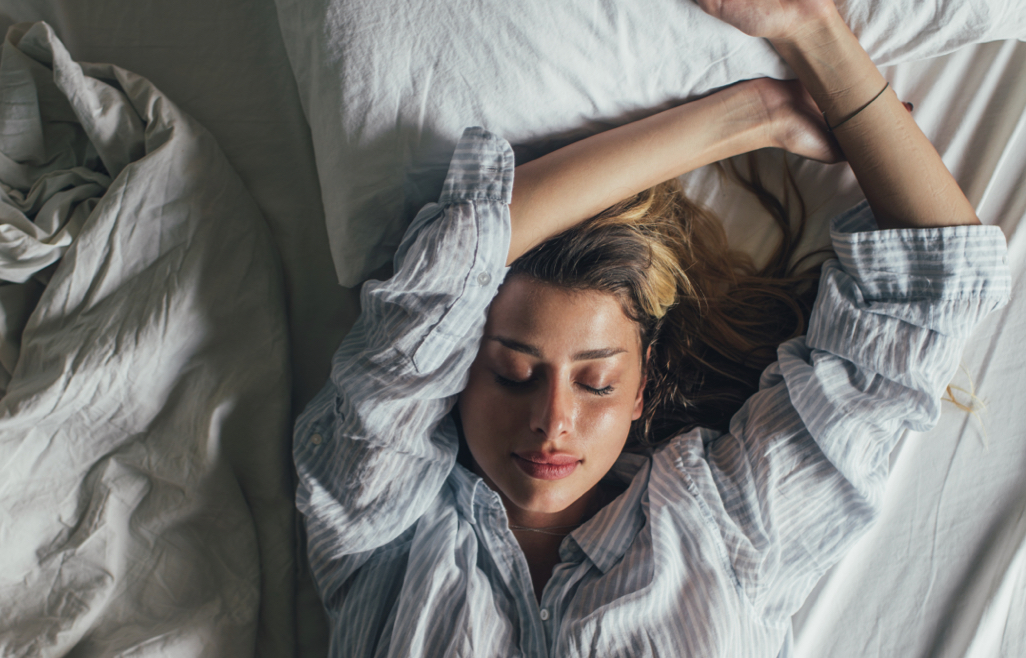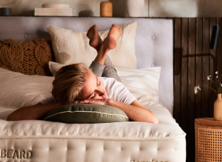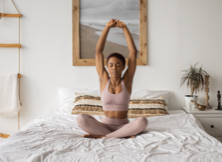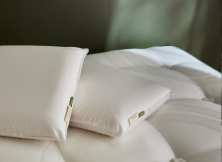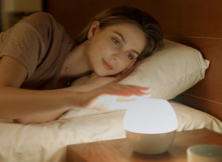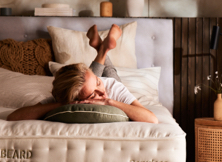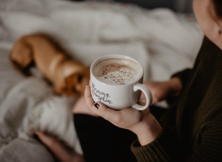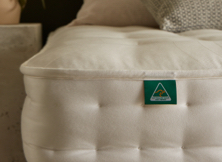A night or two with little or interrupted sleep happens to most of us from time to time. You may be stressing over a big work presentation, or overly excited about a big life event the next day. But when one night turns into a week and one week turns into months, it’s safe to say you might be suffering from the sleep disorder insomnia.
Most individuals with insomnia frequently experience one or more of the following symptoms:
- Difficulty falling asleep
- Waking up often during the night
- Having trouble going back to sleep
According to the Sleep Health Foundation, approximately 10% of people experience insomnia, while about a third will have mild insomnia at times during their lives.
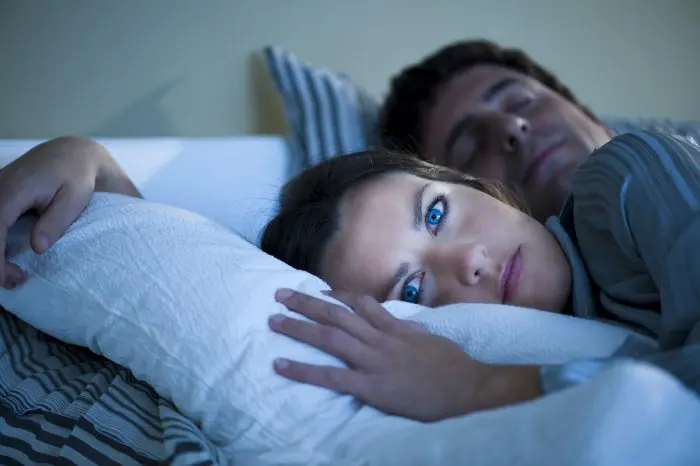
Although the amount of sleep needed varies from person to person, most adults require at least seven to nine hours of sleep a night. If poor sleep is affecting your quality of life, natural remedies may help.
Keep reading to learn how you can take charge of your sleeping patterns with our list of the best natural prescriptions for insomnia.
Meditate before bed.
According to the National Sleep Foundation, meditation has been shown to increase sleep time, improve sleep quality, and make it easier to fall (and stay) asleep. If you’re new to meditation, start by finding a comfortable seat or even lying down. Close your eyes and breathe slowly and deeply while you begin to bring your attention to your breath. With each inhale and exhale try your best to not let the mind wander. If it does, acknowledge it and direct your attention back to your breath. It’s best to start meditating five minutes at a time and gradually increase the length of the meditation as you get more comfortable with the practice. If you’d prefer to have someone guide you through a meditation, there are free apps such as Calm, Insight Timer, and 1 Giant Mind that are perfect for beginners wanting to learn simple meditation techniques.
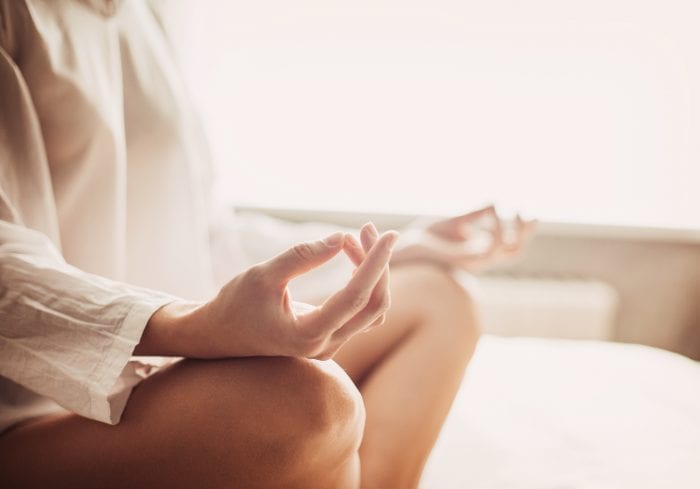
Incorporate moderate exercise into your daily routine.
Although there isn’t an extensive volume of research about the effect of exercise on chronic insomnia, some studies do suggest that it aides in the quality of sleep. Exercise triggers an increase in body temperature, and therefore, the post-exercise drop in temperature may promote your natural sleep cycle. One study found that a bout of moderate-intensity aerobic exercise (for example, walking) reduced the time it took to fall asleep. It also increased the length of sleep in people with chronic insomnia compared to a night in which they did not exercise. Because insomnia is commonly linked with elevated arousal, anxiety, and depression, exercise may also reduce insomnia by reducing these symptoms. If exercise isn’t part of your daily routine, it’s always best to start with an attainable goal. Start with a brisk walk during your lunch break or even in the evening, a couple of hours before bedtime.

Take a magnesium supplement or use magnesium products.
Magnesium is one of the most common and underrated minerals on Earth. In fact, every cell and organ in your body needs this to function. This inflammation fighting mineral is found in many foods such as green leafy vegetables, nuts, whole grains, avocado and quinoa. Not only is magnesium great for your overall health, it actually aids in relaxing the brain by activating the parasympathetic nervous system, the system responsible for making you calm and relaxed. It also regulates the hormone melatonin, which guides sleep-wake cycles in your body. Taking a magnesium tablet, using sprays, wipes or oils could aid in improving your length and quality of sleep.
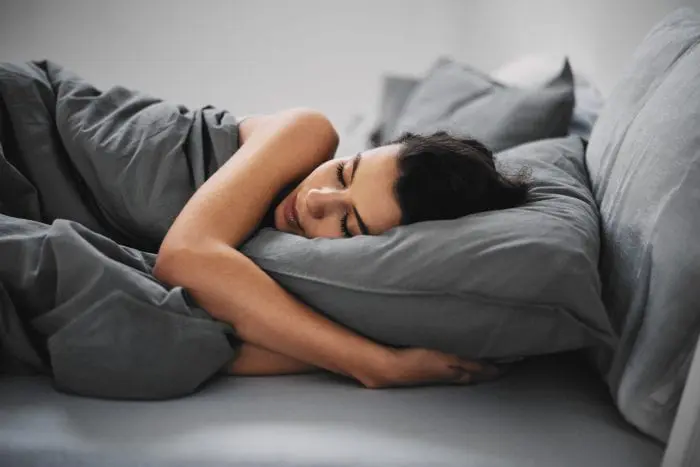
The Bureau of Statistics’ Australian Health Survey revealed about a third of adult Australians don’t get enough magnesium. So it’s no wonder it would be an essential home remedy for those of us suffering from insomnia. The Institute of Medicine suggests a daily dietary intake of 310–360 mg of magnesium for adult women and 400–420 mg for adult men. Try taking it right before bed to boost its effects.
Try to eat calming foods before bed.
It’s a commonly used phrase today that “food is medicine” as we now know that naturally grown foods have wonderful medicinal properties. Bananas, for example, are naturally high in potassium, tryptophan and magnesium, all minerals that are essential to achieving a deep night’s sleep. Walnuts, flax seeds, pumpkin seeds, and sunflower seeds are also high in tryptophan and magnesium. Warm beverages such as milk and camomile tea have a natural calming effect which make them perfect to sip on as you’re laying in bed reading a book. And this is just the start of the list of foods that are considered natural sedatives. Check out more here!
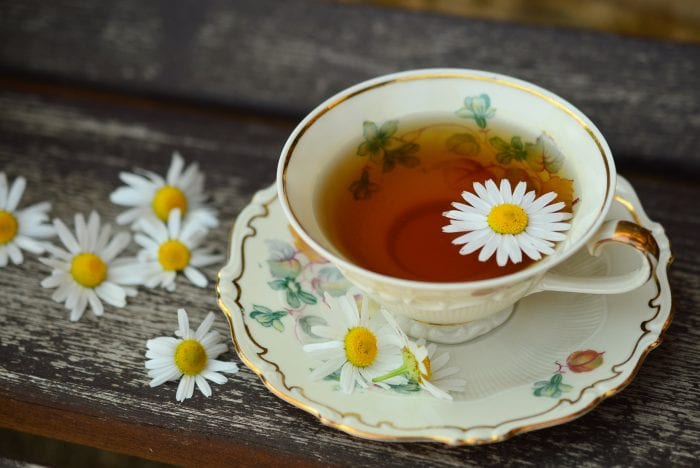
Create the most optimal sleeping environment.
Often times, sleep issues are the direct result of the environment in which we are trying to get our shut-eye. Our sleep schedules and circadian rhythm are heavily affected by light which is why we sleep when it’s dark and are awake when it’s light. The A.H Beard Nox Smart Sleep Light produces soothing light and sounds to help you fall asleep easily and wake up rejuvenated. In the evening, it’s calming red light increases the production of melatonin – your body’s natural sleep hormone. In the morning, a soft yellow light gradually changes to bright white to wake you up naturally and simulate the sunrise.

Nox also monitors the temperature, humidity, light and noise levels in your bedroom, helping you create the ideal conditions for sleep. You can even download the Sleep CENTRAL app to easily control the functions of the Nox Light, and view environmental conditions in your bedroom. The app also monitors your sleep patterns and provides personalised tips to help you improve your sleep quality.
Everyone should be able to wake up feeling refreshed and energised, so if you can’t remember the last time you got a full night of sleep, try incorporating some of these natural remedies to start getting the shut-eye you need and deserve!






